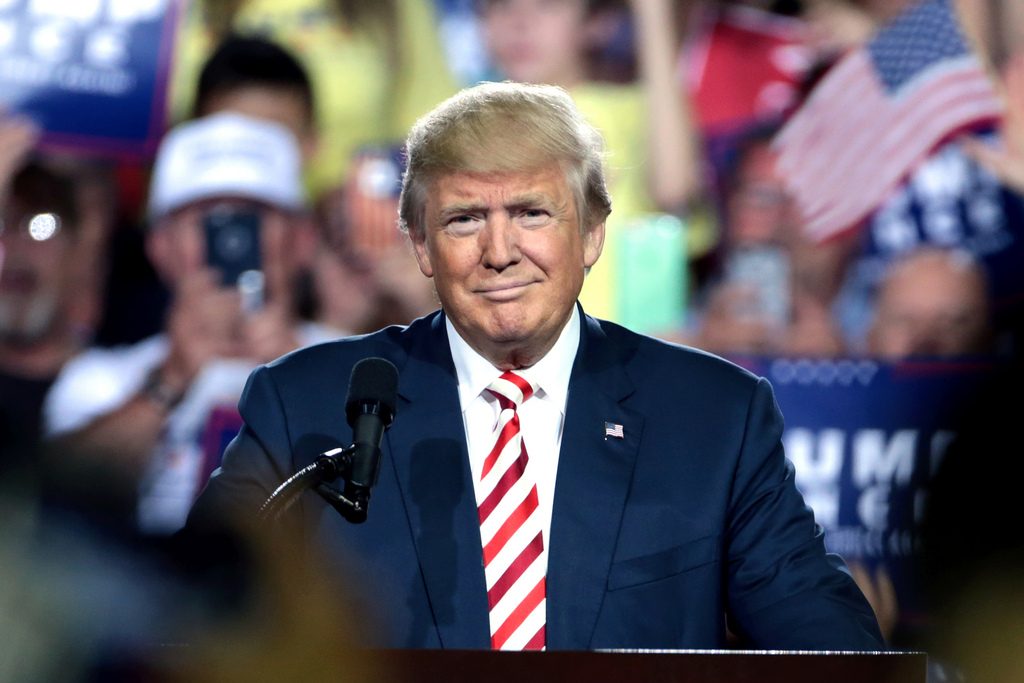University of Maryland leaders, along with College Park and other local officials, have reaffirmed their support of the Paris climate agreement after President Trump announced Thursday his withdrawal from the accord.
The 2015 global agreement aims to reduce greenhouse gas emissions and limit the world’s average rise in temperature. As part of the agreement, the United States has committed to cutting emissions by up to 28 percent by 2025, as well as providing $3 billion in aid to other nations by 2020.
Of the 197 United Nations Framework Convention on Climate Change member states, 195 have signed it. United States will join Syria and Nicaragua, the only two member states not part of the deal.
After Trump’s announcement, university President Wallace Loh tweeted that this university “remains committed to climate action” and “is on track to carbon neutrality by 2050.”
Carbon neutrality refers to both taking measures to reduce greenhouse gas emissions and buying carbon offsets for any remaining emissions.
Loh has joined hundreds of mayors, governors, college and university leaders, businesses and investors across the country to form a coalition committed to honoring the Paris agreement’s goals.
The coalition, which goes by the name “We Are Still In,” wrote in its statement that it “will pursue ambitious climate goals, working together to take forceful action and to ensure that the U.S. remains a global leader in reducing emissions” in the absence of the federal government’s support.
University System of Maryland Chancellor Robert Caret, as well as nearly all 12 university system presidents, Maryland Attorney General Brian Frosh and five other Big Ten university presidents have signed up for the growing coalition, as of Tuesday.
“The university has shown increasing support for sustainability and for setting goals and measuring against those goals year after year,” said Scott Lupin, this university’s Sustainability Office director. “The [university] will remain fully committed to everything that we’ve put in place and we’re going to continue to work on the projects and programs that are in development right now and we’re going to continue to build upon those in the years ahead.”
This university’s Climate Action Plan, created in 2009, stated some of its goals are to reduce emissions by 50 percent and purchase only renewable power by 2020, and to achieve carbon neutrality by 2050. Between 2005 and 2015, this university reduced its carbon footprint by 27 percent.
Under Armour has also signed onto the coalition. Kevin Plank, the company’s CEO and an alumnus of this university, condemned Trump’s decision to exit the agreement in a statement issued Friday.
[Read more: Under Armour CEO Kevin Plank blasts Trump’s decision to leave Paris agreement]
“Climate change continues to threaten our planet, our cities and our economies,” Plank said in the statement. “Climate change is real and must be taken seriously by our business community, our customers, our neighbors and our elected officials.”
College Park Mayor Patrick Wojahn said the decision to pull out of the Paris agreement was “wrong-headed for many reasons.”
“It’s going to hurt the environment, it’s going to hurt our economy, it’s going to really hurt our ability to have a role in the global playing field as we work to address what is, I think, likely to be the most significant challenge and most significant problem of the 21st century,” Wojahn said.
Wojahn said he has not signed onto the coalition, because he can’t make the decision to commit the city to its goals on his own. Wojahn has asked the city staff to look into what College Park would need to do to make those commitments and may bring it up for discussion in a work session in the near future, he said.
Wojahn said he’s also asked the city staff to review College Park’s current sustainability plan for a discussion with the city council and look for ways the city can “make up for this lack of leadership on a national level.”
“It’s going to be a lot more difficult for local governments and authorities to do it without the federal government as a partner,” he added.
The College Park City Operations Sustainability Plan includes initiatives to increase the recycling rate to 60 percent by July 2018, reduce electricity and natural gas use in the city’s facilities by 15 percent per square foot by 2018 and generate 20 percent of electricity for city facilities with renewable sources by 2018.
Wojahn said the city has taken several steps toward sustainability recently, including installing solar panels on its Youth and Family Services Building, building its new city hall to the “highest standards of green building infrastructure” and promoting “smart growth and sensible development that will reduce the overall impact of the activities of the people who live in our boundaries.”
Takoma Park Mayor Kate Stewart said she experienced “sadness and anger” when the nation withdrew from the agreement, but committing her city to the coalition’s goals was easy, because her city is one that “traditionally has been very dedicated to environmental sustainability.”
Takoma Park has put in place a “comprehensive plan,” she said. The plan includes piloting tax credits for energy efficiency upgrades and encouraging its citizens to carpool to reduce greenhouse gas emissions.
But Stewart said it would be difficult for local leaders to fulfill the Paris agreement on their own.
“We’ll do the best we can under the circumstances, but I think having that commitment at the national level, and coming together with countries around the world, is essential if we’re actually really going to tackle climate change,” Stewart said.
Lupin said it’s today’s students who will tackle the issue.
“They are the most informed generation on environmental issues and issues involving climate change and sustainability,” he said. “They’re going to bring a lot of resolve to continue to work on this.”
Willem Klajbor, director of the Student Government Association’s Student Sustainability Committee, said Trump’s decision was “disheartening, but not shocking.”
“One silver lining here might be that, hopefully, people will start to realize the importance of local politics and getting involved in the local level, whether that’s on campus, in your city, in your hometown or in your state,” Klajbor said, citing the many local politicians and university presidents that have committed to sustainability.
Universities and colleges have an important role to play in a “time where scientific fact can be polarizing,” said Klajbor, a senior economics and environmental science and policy major, adding that it’s up to professors to educate the current generation on climate issues.
“When [universities] make sustainable changes and when they make breakthroughs in the field of sustainability and environmental consciousness, it tends to ripple through the community,” Klajbor said. “That’ll lead to changes, hopefully, in municipalities, localities, and hopefully it will continue to spread.”



